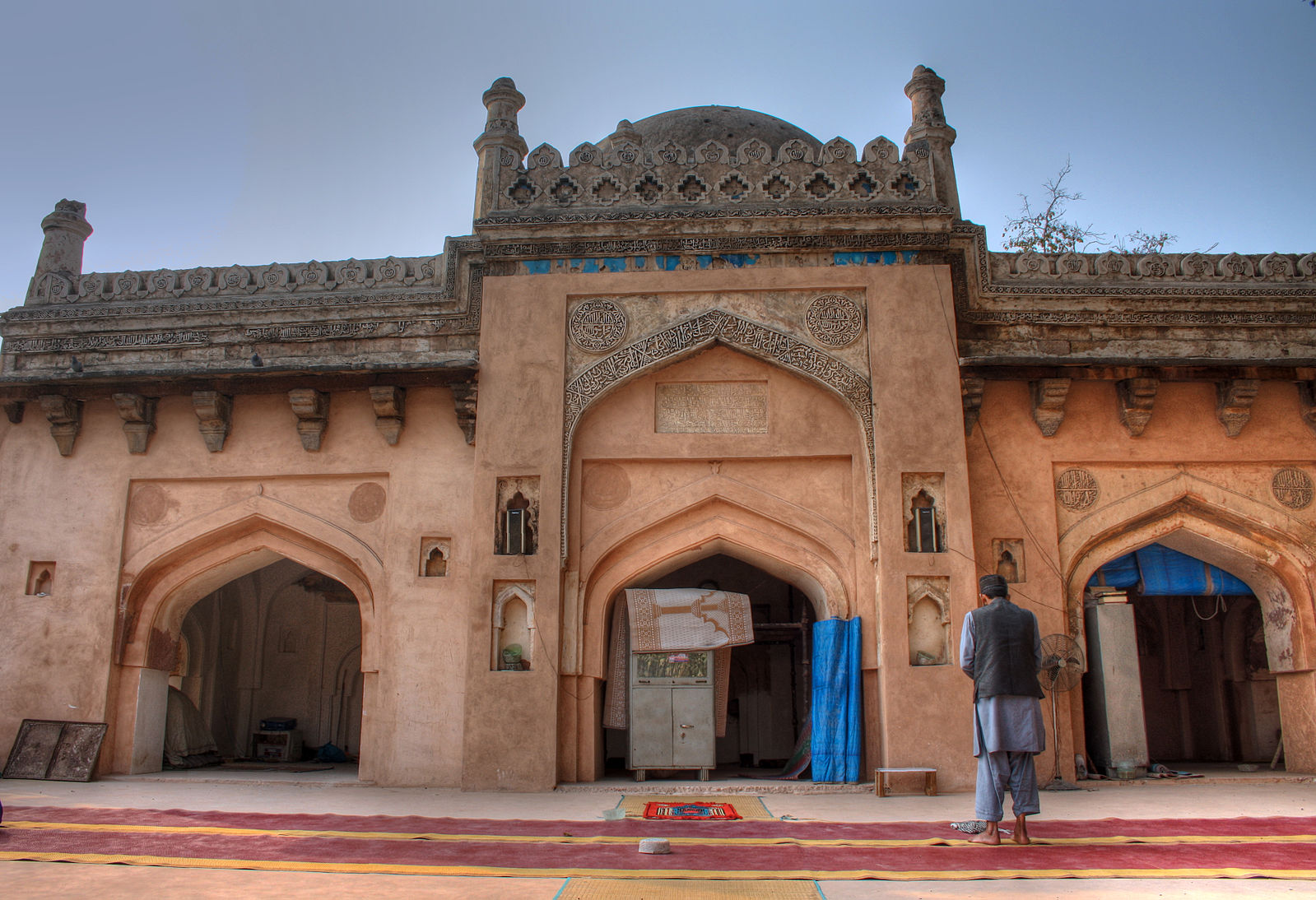We still don’t know why police stopped Friday prayers at multiple mosques in Delhi

Last Friday on the eve of Holi, several mosques in Delhi did not hold congregational prayers allegedly under the direction of police.
Muhammad Raafi | TwoCircles.net
NEW DELHI — The barring of congregational Friday prayers in at least 16 mosques in New Delhi has enraged the minority Muslim community living in the capital city.
On Friday, March 18, policemen allegedly barred Muslims from participating in the congregational Friday prayers in Panchsheel and surrounding areas. On March 18, it was Shab-e-Barat (a major festival of Muslims) and the day coincided with Holi.
https://twitter.com/arbabali_jmi/status/1506143127781851137?s=20&t=LLBP4nt4maUkjM4OLKnnVA
Neyaz Ahmad, Imam (a person who leads the prayers) of the Lal Ghumbad mosque in Panchsheel Enclave told TwoCircles.net that as he was preparing to lead the prayers, a posse of policemen arrived at the mosque and told him to not hold the prayers.
Lal Ghumbad mosque is a 500-year-old protected monument under the Archaeological Survey of India (ASI).
Ahmad, along with other people who had assembled at the mosque for prayers, tried to reason with the policemen. “But they did not respond,” Ahmad said.
This is for the first time, Ahmed said, that he witnessed this. He has been leading the prayers at the mosque for many years.
He said he thought that it was because of Holi. “But then, the situation in the area has always been peaceful,” he said.
A few meters away from Lal Ghumbad mosque is the Zeenat-ul-Qura’an madrasa. The students of the madrassa also offer their congregational prayers at the same mosque. Muhammad Zeeshan, a 17-year-old student of the madrassa said that he saw five policemen at the gate of the mosque. “They told people who had converged for the prayers that the prayers have been barred at the mosque. Those who were coming from the prayers were not allowed to enter,” Zeeshan said.
Muhammad Furqan, a resident of the Panchsheel area said that he tried to ask for a written order from the police but was told that there was no such order and that it was to be communicated verbally.
Javaid Ahmad, the president of the Lal Ghumbad mosque said that he tried to reach out to the police but was not provided with any information.
However, all the mosques where the congregational prayers were barred have continued with the daily prayers. “Since Friday, in fact also on the same day, we have been performing daily prayers at the mosque,” Ahmad said.
At another mosque, Neeli Masjid, in the Hauz Khas area, Muslims were disallowed to offer congregational Friday prayers on March 18. Neeli Masjid is also under the protection of the ASI.
The caretaker of the mosque, Khalid Ahmad, said that it had never happened before. He said that the cops refused to share any reasons with him.
Reacting to the barring of Friday prayers, Zafar ul Islam, the former Chairman of the Delhi Minority Commission, said that it indeed was unprecedented. “The atmosphere in the country is such that they (government) do not bother to ask the Muslims about the decisions,” Islam said. Islam is an author and journalist based in New Delhi. He is currently the editor and publisher of the newspaper The Milli Gazette.
Islam said that there are speculations that the possible reason for this sudden prohibition on prayers could be Holi. But, Islam said, the matter could have been resolved cordially by changing the timing of the prayers. “Many mosques in Lucknow changed the timings of congregational prayers. The same could have happened here. But you know… the atmosphere is such…”
https://twitter.com/khan_zafarul/status/1505474908897574920?s=20&t=77CnIIv3d0RaPovCkOydTQ
He said, otherwise also, there was no need to bar the congregational prayers since the Holi celebrations last up to mid-day.
Islam said that while Delhi Police has said that prayers was barred due to Shab-e-Baraat alleging that the youth act mischieviously. “Shab-e-Barat is a late-night event and the police were lying,” he said.
Shaan Muhammad, a resident of Delhi said that stopping Muslims from offering prayers was against fundamental rights. Muhammad said that the police should make it public as to who ordered them to stop congregational Friday prayers.
“Barring Muslims from offering Juma (Friday) congregational prayers is not only an attack on our fundamental rights but is a form of oppression. It is problematic and wrong on the part of the Delhi Police that they did not show any written order to the mosque authorities,” he said.
While the ASI has denied issuing any such order, the Delhi police are tight-lipped about the issue.
TwoCircles.net attempted to reach out to multiple police officials but the officials either did not receive calls or feigned ignorance about the issue. The story will be updated as and when the officials respond to our queries.
Muhammad Raafi is a journalist based in New Delhi. He tweets at @MohammadRaafi
